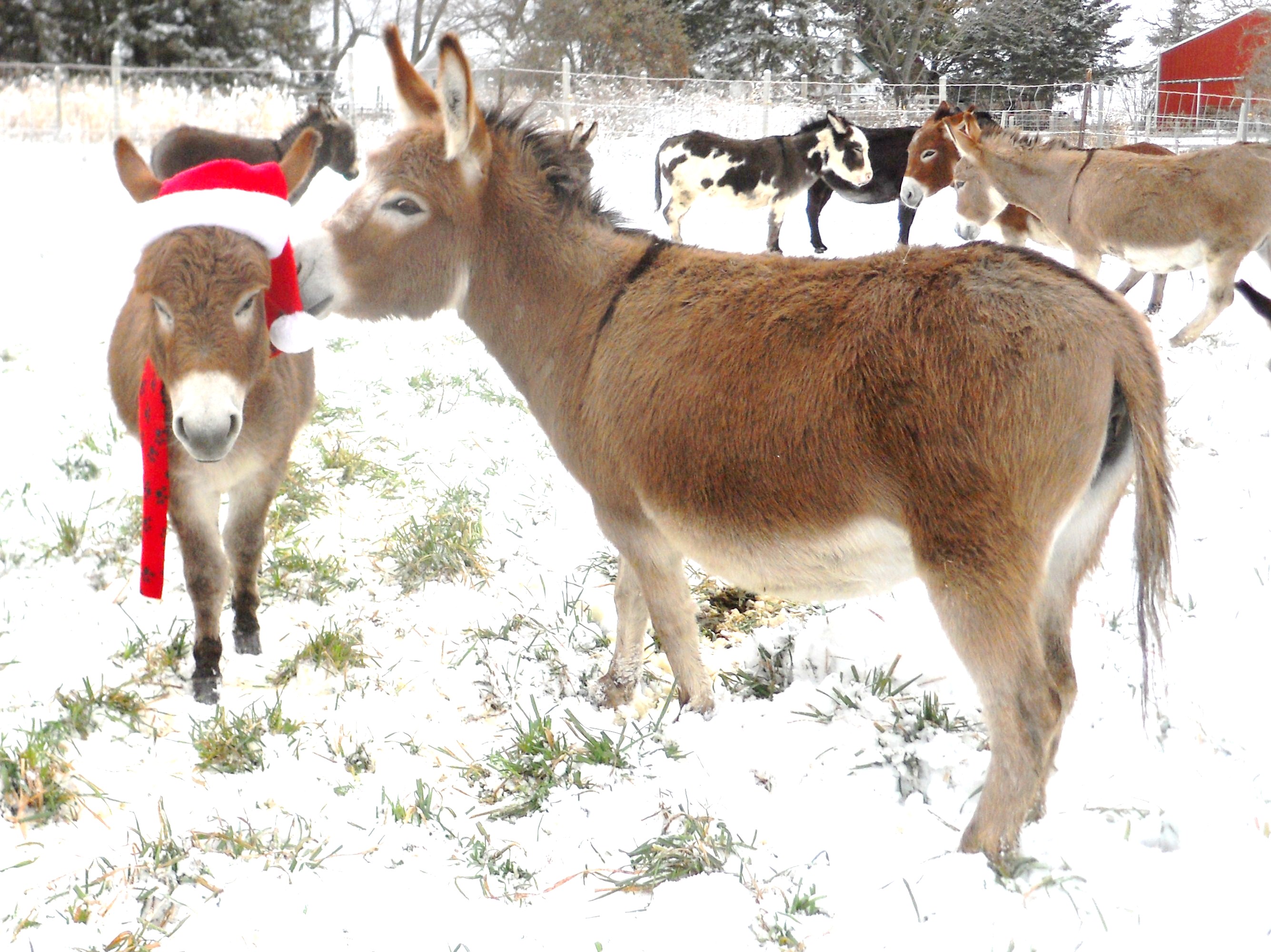It was late summer of 2014 when we arrived in Frederic, Wisconsin to begin our next chapter, leaving Minneapolis and trading in everything familiar for life in the country. We were ready and willing to take on the new challenges of running a lodge, managing forty acres, and building the little hobby farm we had been dreaming of.
With the kids off to college and our nest empty, it was time to put up fences and start filling the pastures! We had a very specific list...chickens, sheep, and alpacas, in no particular order. All of that changed when the winter issue of Modern Farmer arrived, showcasing the most adorable donkey I had ever seen. We quickly started our research and got a note off to Halfpint Hollow. Sue's speedy and thoughtful reply was the beginning of what has become one of the best decisions we've ever made!
We enjoyed every minute of our visit, and had the chance to spend time with the two foals we would be back for in August. Hard to leave without them, but knew they needed two additional months with their mothers.
We arrived back home to our four sheep, ten hens, and no alpacas, to prepare for our late summer arrival. Our anticipation grew as we built their shed and put up fencing. Before we knew it, August had arrived. We hopped in the truck and made our way back to pick up those adorable little donkeys!
Fast forward to now in 2019...Sam and Gus will soon be four years old. It's been sheer delight watching them grow and change. Some days find them feisty and full of energy and other days they're quiet and full of snuggles. Their soulful eyes charm family and friends and the occasional "heehaw" is sure to bring a smile to everyone in range. Their velvety mouth and great big teeth gently accept animal crackers from visitors who visit them in the pasture. I just can't even imagine life without these two resident characters.













